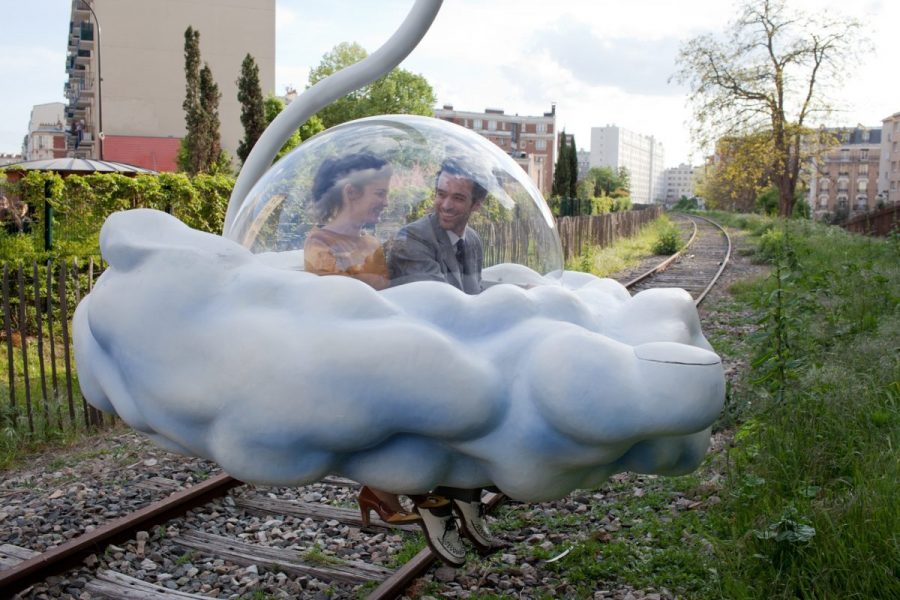Allan Johnstone takes a look at a few, select titles from the cinematic bounty of this year’s Glaswegian movie mela. The Glasgow Film Festival runs from Thursday 20 February – Sunday 02 March.
This year the Glasgow Film Festival celebrates its tenth birthday by being as glorious and occasionally baffling a celebration of cinema as ever. Heavy-hitters like festival opener The Grand Budapest Hotel rub sprockets (or whatever the digital equivalent is) with the small and eccentric, of which there are too many to list. A good place to start, however, would be The House of Him, Robert Florence’s directorial debut. The budget- £1000- and the schedule- 16 days- sound like the stuff of a Burnistoun sketch, but the subject matter- murder and misogyny- is decidedly less chuckleworthy.
If you crave more funny men directing dour films, there’s Richard Ayoade’s The Double, a Dostoevsky adaptation with Jesse Eisenberg, Mia Wasikowska and, best of all, Chris Morris. The film’s dystopian aesthetic suggests that Ayoade may have seen Brazil at least once- and speaking of which, Glasgow is hosting Terry Gilliam’s The Zero Theorem, which could be a return to form for the erratic maestro.

World cinema is well represented in the CineChile strand, with films like The Golden Dream demonstrating a commitment to social realism that should find favour with Scottish audiences, not least because its director, Diego Quemeda-Díez, previously collaborated with Ken Loach. The movie follows the sometimes harrowing progress of immigrants to the US but if you prefer a woman struggling to read a newspaper, there’s Illiterate, a comic two hander starring Paulina Garcia.
From colder climes come three coming of age dramas – Metalhead, about a teenage girl’s love of heavy metal, Northwest, another entry in the Scandinavian crime cycle, and most pertinently, a Swedish take on Mary Queen of Scots. A strong pick for crossover success, however, would be Unforgiven, because it’s a remake of IMDb’s favourite Clint Eastwood film, and also because it’s Japanese, so think samurais instead of Clint on a mule. How could that not work?

Elsewhere, the festival welcomes back some top flight talent. Michel Gondry’s Mood Indigo, a boy meets girl love story told with trademark visual impishness, is already being described as a career high. Festival favourite Bertrand Tavernier returns with Quai d’Orsay, an adaptation of a graphic novel, but one about politicians not superheroes (although that might not affect the spandex quotient). These films will be worth a look, but most intriguing is Black Angel, a fantasy short originally screened before The Empire Strikes Back. Directed by Roger Christian – responsible for Battlefield Earth, but give him a chance- it looks to be a lush, atmospheric mini-epic, with a BBC Radiophonic Workshop assisted soundtrack.

Of course, selecting 22 minutes as the highlight of 10 days is patently unfair, and means ignoring the Roger Rabbit on sad drugs of The Congress, Coen-flavoured Gallic noir Blue Ruin and gruelling Holocaust documentary The Last of the Unjust, not to mention the FrightFest, the Short Film Festival and about 95% of the week’s proceedings. It’s moments like this when you come to realise what the GFF actually is. You can call it a showcase for the best of cinematic art, or a highlight of Scotland’s cultural calendar, but what it really amounts to is hundreds of thousands of individual festivals formed around the bloody tough choices we’ll all have to make come February 20th. And in a weird, brilliant sort of way, that’s cause enough for celebrating.
Click here for more information about the Glasgow Film Festival 2014
